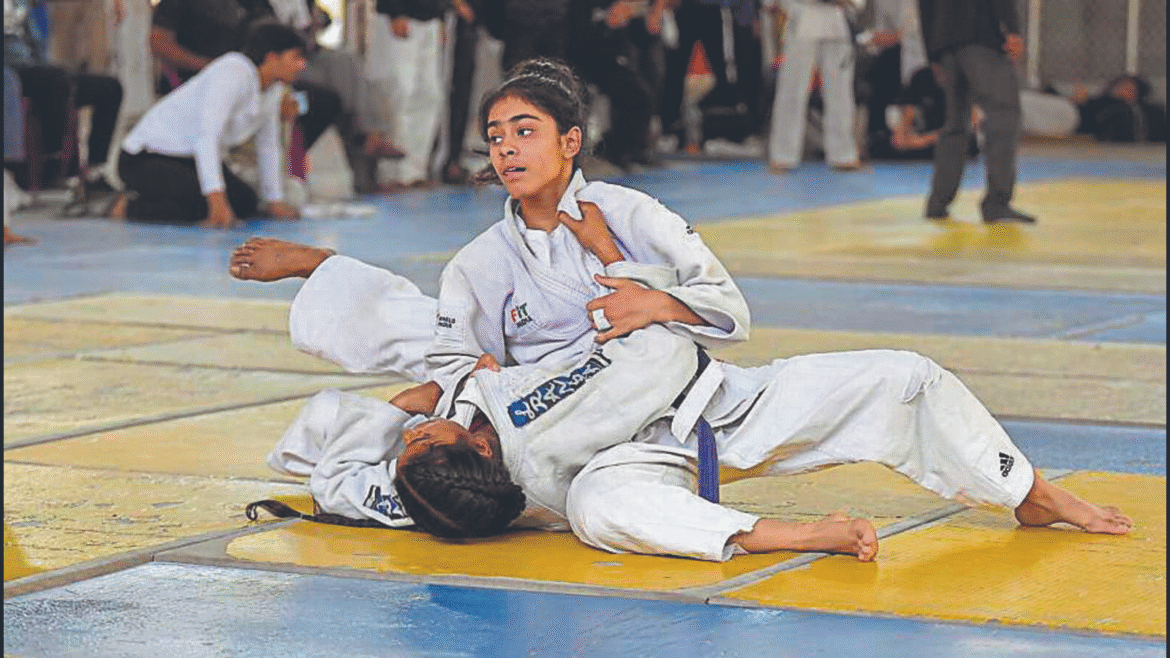AI Generated Summary
- “If I can produce Olympians from a place that has no proper mats or infrastructure, who can stop me from doing it again—from a room.
- Their goal found a home, quite literally, in a single room of a government girls’ school near the original boys’ centre.
- A similar intervention now could elevate the Rani Lakshmibai Centre from a dream to a national beacon of excellence.
In a humble room tucked away in Gurdaspur, Punjab—a city often overshadowed by headlines of drones and drugs—a quieter, more powerful story is taking shape. Here, under the watchful eyes of determined coaches, a cadre of young girls is redefining the meaning of strength, resilience, and ambition. In this makeshift dojo, fragility gives way to fearless precision. These girls are not just learning judo—they’re changing the future.
From Boys’ Glory to Girls’ Grit
The transformation began with success. The Shaheed Bhagat Singh Centre had already earned its stripes by training over 40 international and more than 100 national-level male judokas. But its coaches, led by Amarjit Shastri, knew it was time to pivot. Why not extend that knowledge to girls—those long denied the spotlight in combat sports?
Their goal found a home, quite literally, in a single room of a government girls’ school near the original boys’ centre. Initially hesitant, the school quickly opened its doors after witnessing the centre’s previous success. “If I can produce Olympians from a place that has no proper mats or infrastructure, who can stop me from doing it again—from a room?” says Shastri.
That room now carries a name worthy of its aspirations: the Rani Lakshmibai Centre, chosen by the girls themselves. Like the warrior queen of 1857, these girls train with a fire that defies the limits of poverty, patriarchy, and pain.
Steel in the Making
Led by coaches Balwinder Kaur, herself a former judoka, and NIS-qualified Atul Kumar, these girls are taught that judo is not just about winning. The philosophy here is deeper: compete not to be better than others, but to be better than you were yesterday. And even if you don’t win, you’ve already beaten those who never dared to step on the mat.
The results are speaking. Within a year of its inauguration by District Education Officer Rajesh Sharma, the centre is already producing medalists in junior and sub-junior tournaments. Girls aged between 10 and 18—mostly from poor and lower-middle-class families—are emerging as formidable competitors.
Take Niswanjit Kaur, for example. A prodigy whose father, a textile engineer in Gurugram, dreams of seeing her on the Olympic podium. Even experienced judokas from neighboring centres come to watch her throw, grapple, and strike with uncanny finesse. Her speed of learning, coaches say, is a quality that will carry her far.
Then there’s Harpuneet Kaur, daughter of Coach Balwinder, already a medalist in her age group. Alongside her, young stars like Ruby and Pinky (both 10), and Pooja (16), are making a name for themselves. “Some people lift weights,” says Pooja with a grin, “I lift opponents.”
Struggles on the Mat
But the road is anything but easy. With outdated mats and limited resources, injuries are common. “Old or worn-out mats may not provide adequate cushioning, hence increasing the risk of injury,” warns coach Atul Mahajan. Despite this, the spirit remains unbroken. Coaches often dip into their own pockets to support the girls, from meals to uniforms, even when basic needs go unmet.
Yet hope remains, and so does the belief in goodwill. The centre is now seeking support from philanthropist SPS Oberai, a Dubai-based magnate known for funding noble causes. His previous intervention helped international judoka Jasleen Saini secure foreign training crucial to his Olympic dreams. A similar intervention now could elevate the Rani Lakshmibai Centre from a dream to a national beacon of excellence.
Beyond the Tatami
Coach Shastri believes women’s judo is more than sport—it’s a reflection of a broader societal struggle for equality. “Today, female medal-winning champions are celebrated just as much as their male counterparts. Their victories are no longer footnotes; they’re headlines,” he asserts.
And perhaps that’s the most powerful throw of all: flipping a narrative that once saw girls as weak, and replacing it with one where they’re strong enough to lift themselves—and a community—with every match they fight.




